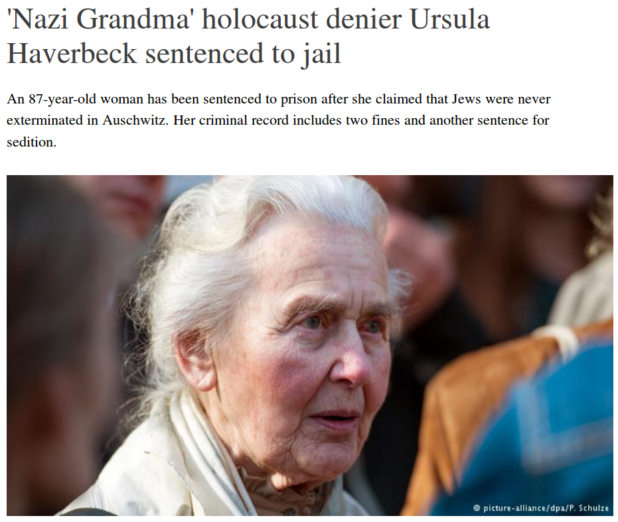Eric Striker
Daily Stormer
January 19, 2017

In Europe these days, there aren’t many cases where good decisions are on the table – just bad and worse.
The German government has chosen the former for now, as their fear of the NPD going underground amidst an almost unprecedented police crackdown on immigration critics lingers.
YES, Germany’s National Democratic Party (NPD) is “related to National Socialism”, the country’s supreme court in Karlsruhe said on January 17th. And yes, its aims are to undermine Germany’s constitution and ultimately to establish an ethnically pure German Volk. And yet, the red-robed judges opined, there is no sign that the NPD could come close to fulfilling its goals. The party, it ruled, will therefore not be banned.
This landmark verdict ends a decades-long saga of failed efforts to declare Germany’s neo-Nazi party illegal. A previous attempt to outlaw the NPD foundered in 2003 because government-paid informants were among the witnesses, tainting the evidence. The latest push began in 2013, when the federal legislature’s upper chamber, representing Germany’s 16 states, brought a new case. But the standard of proof for banning political parties, mandated by the European Court of Human Rights in Strasbourg, is high. In societies that value free speech and association, it is not enough to prove even the worst motivation; a party must also have a “real potential” to make good on evil designs.
…
The reasoning behind the decision is sound. The NPD’s membership has withered to about 5,200 (as of 2015). Its share of the vote in the most recent national election was a mere 1.3%. It lost its last remaining seats in a regional parliament, in the eastern state of Mecklenburg-Western Pomerania, last year. As of today it has only a single elected representative—and he is in the European Parliament. The plaintiffs, and many experts on radicalism, argued that the NPD nonetheless remained dangerous. Its share of the vote is higher in eastern Germany than it is nationally. In some places—such as Jamel, a town in Mecklenburg—it plays a large local role. This presence, as well as connections to mobs that threaten violence against migrants, creates “an atmosphere of fear”, the lawyers argued. Jamel is an exception, the judges countered. More than seven decades after Hitler, German democracy and civic society are mature and robust enough to contain this pathogen.
That assessment is correct, and thus a historical landmark, for it posits an official end to Germany’s special and unique status within Europe in the treatment of right-wing radicalism. Yet this verdict is also no reason to relax. As became clear in last year’s election in Mecklenburg, one reason why the NPD has been atrophying is that some of its supporters have switched to the less toxic but still far-right Alternative for Germany (AfD) party, which was founded in 2013. The AfD is xenophobic enough to satisfy many former NPD voters, and far more popular: it is currently polling at 13% nationally. As in other European countries, racists and bigots will continue to find their bullhorns.
I actually find the “in-your-face” honesty of the German state to be refreshing, in contrast to the Anglo-Saxon world where the government tries to undermine political parties covertly or look to crackdown on groups with phony terrorism/tax evasion/etc charges. At least in Germany you get locked away for your thought-crimes and nobody pretends any different.
The German government is saying in no uncertain terms it won’t ban NPD until they get enough votes to have a voice in the Bundestag.
Banning the NPD would only narrow the already microscopic tunnel of peaceful political remonstration the German people have against their rape and murder by millions of unassimilable racial aliens who despise them. The Zionist regime of Germany, finding itself increasingly isolated on the world stage with the Trump election and Brexit, had its scissor around the yellow wire of the ticking time bomb of popular discontent, but decided not to cut it (yet).

